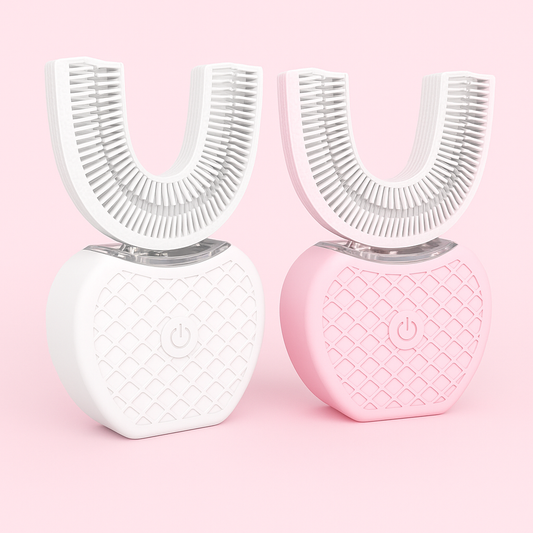Introduction to Xylitol
As the world continues to embrace healthier lifestyles and seek out natural alternatives to conventional ingredients, xylitol has emerged as a star sweetener in 2025. This sugar alcohol offers a unique combination of sweetness, low calorie content, and health benefits, making it an increasingly popular choice among consumers and manufacturers alike. Whether you’re curious about its role in oral care or wondering how it compares to traditional sugar, this comprehensive guide will explore everything you need to know about xylitol — from its origins and uses to its benefits and safety profile.
What Is Xylitol?
Xylitol is a naturally occurring sugar alcohol (polyol) that chemically resembles sugar but has distinct properties. It is found in small amounts in many fruits, vegetables, and even human metabolism. Industrially, xylitol is commonly extracted from hardwood trees such as birch or from agricultural byproducts like corn cobs and sugar cane bagasse.
Unlike table sugar (sucrose), which is a disaccharide composed of glucose and fructose, xylitol is a five-carbon sugar alcohol. This structural difference accounts for its unique metabolic pathway and health effects.
Xylitol typically appears as a white, crystalline powder that tastes sweet, similar to sugar but with about 40% fewer calories. It is about as sweet as sucrose but has a lower glycemic index (GI) of approximately 7, compared to sugar’s GI of around 60-70. This means xylitol has minimal impact on blood sugar and insulin levels, making it an attractive option for people managing diabetes or metabolic health.
How Is Xylitol Produced?
The production of xylitol involves several steps that transform plant-based materials into the final sweetener:
- Extraction: Hemicellulose, a component of plant cell walls, is extracted from sources like birch wood or corn cobs.
- Hydrolysis: The hemicellulose is broken down into xylose sugar through hydrolysis.
- Hydrogenation: Xylose is chemically hydrogenated to convert it into xylitol.
- Purification and Crystallization: The xylitol is purified and crystallized to produce the food-grade sweetener.
Advances in biotechnology and green chemistry have improved the efficiency and sustainability of xylitol production, further supporting its rise as an eco-friendly sugar substitute.
Common Uses of Xylitol in 2025
Xylitol’s properties make it versatile across various sectors. Below are some of the most prominent applications:
- Oral Health Products: Xylitol is widely used in toothpaste, mouthwash, and especially chewing gum due to its ability to inhibit cavity-causing bacteria. It helps maintain a healthy oral microbiome and reduces the risk of tooth decay and plaque buildup.
- Food and Beverage Industry: Many sugar-free or reduced-sugar products like candies, baked goods, ice creams, and beverages utilize xylitol as a sweetener. It enhances flavor while lowering calorie counts and glycemic impact.
- Pharmaceuticals and Nutraceuticals: Xylitol is used as a sweetening agent in syrups, vitamin chewables, and cough medicines, improving palatability without raising blood sugar.
- Personal Care Products: Some skincare and cosmetic products incorporate xylitol for its moisturizing properties and skin compatibility.
- Pet Care Products: While xylitol is toxic to dogs, carefully formulated pet dental chews and treats sometimes use xylitol alternatives inspired by its effectiveness in oral health.
Health Benefits of Xylitol
Scientific research continues to validate a range of benefits associated with xylitol consumption, particularly when used as a sugar alternative. Here are some key advantages:
1. Promotes Dental Health
Xylitol is perhaps best known for its positive effects on oral hygiene. It helps:
- Reduce Cavity Formation: Xylitol inhibits the growth of Streptococcus mutans, the primary bacteria responsible for dental caries.
- Neutralize Acidity: By reducing acid production in the mouth, it prevents enamel erosion and tooth decay.
- Stimulate Saliva Production: Increased saliva flow helps remineralize teeth and maintain a balanced oral environment.
- Reduce Plaque Formation: Regular use of xylitol-containing products decreases dental plaque buildup.
2. Supports Blood Sugar Management
Due to its low glycemic index and minimal insulin response, xylitol is beneficial for:
- People with Diabetes: It provides sweetness without the rapid blood sugar spikes associated with glucose or sucrose.
- Weight Management: Controlling sugar intake helps reduce calorie consumption and supports metabolic health.
3. May Improve Ear and Respiratory Health
Emerging evidence suggests that xylitol may inhibit bacteria involved in ear infections and upper respiratory tract infections, potentially reducing the frequency of these conditions, especially in children.
4. Enhances Gut Health
As a sugar alcohol, xylitol also functions as a prebiotic, feeding beneficial gut bacteria and supporting a healthy microbiome. However, excessive intake may cause digestive discomfort in some individuals.
Safety and Side Effects of Xylitol
Xylitol is generally recognized as safe (GRAS) for human consumption by the U.S. Food and Drug Administration and other international regulatory bodies. However, like any food additive, it is essential to understand its safety profile.
Human Consumption
- Moderation Is Key: While xylitol is well tolerated by most people, consuming large amounts (typically over 50 grams per day) can cause digestive issues, including bloating, gas, and diarrhea, due to its laxative effect.
- Allergic Reactions: Rare but possible, individuals should discontinue use if allergic symptoms occur.
Pet Toxicity
One of the most critical safety concerns with xylitol is its toxicity in dogs. Even small amounts can cause a rapid release of insulin in dogs, leading to hypoglycemia, seizures, liver failure, and potentially death. Pet owners should:
- Keep xylitol-containing products out of reach of pets.
- Educate family members and visitors about the risk.
- Seek immediate veterinary care if ingestion is suspected.
Comparing Xylitol to Other Sweeteners in 2025
In the expanding market of sugar alternatives, xylitol holds a distinctive position. Here’s how it compares with other popular sweeteners:
- Stevia: A natural zero-calorie sweetener derived from the stevia plant, stevia is sweeter than sugar but has a bitter aftertaste that some find unpleasant. Xylitol offers a more sugar-like taste and texture.
- Monk Fruit Extract: Another natural zero-calorie sweetener, monk fruit is potent but less versatile in cooking compared to xylitol.
- Sorbitol and Maltitol: Other sugar alcohols similar to xylitol, but often with higher calorie content and more digestive side effects.
- Artificial Sweeteners (Aspartame, Sucralose): Provide intense sweetness with no calories but are sometimes viewed with skepticism due to safety concerns and aftertaste issues.
Xylitol strikes a balance between natural origin, pleasant sweetness, and health benefits that continues to fuel its popularity.
Tips for Incorporating Xylitol Into Your Diet Safely
If you’re considering adding xylitol to your routine, follow these best practices:
- Start Slowly: Introduce xylitol gradually to allow your digestive system to adjust.
- Read Labels Carefully: Identify products that contain xylitol and ensure they fit your dietary needs.
- Maintain Portion Control: Avoid excessive consumption to minimize the risk of digestive discomfort.
- Keep Away from Pets: Store all xylitol-containing items securely to protect your furry friends.
Conclusion
In 2025, xylitol remains a highly valuable and versatile sugar substitute with a broad range of applications and scientifically supported health benefits. Its ability to promote dental health, assist blood sugar management, and function as a low-calorie sweetener makes it an excellent choice for individuals seeking healthier alternatives to sugar.
While generally safe for human consumption, awareness of its potential side effects and pet toxicity is crucial. When used responsibly, xylitol can be a beneficial addition to your diet and oral care routine, helping you achieve better health outcomes without sacrificing sweetness.
As research continues and consumer demand for natural, effective sugar alternatives grows, xylitol is poised to maintain its important role in the food, health, and wellness industries for years to come.


